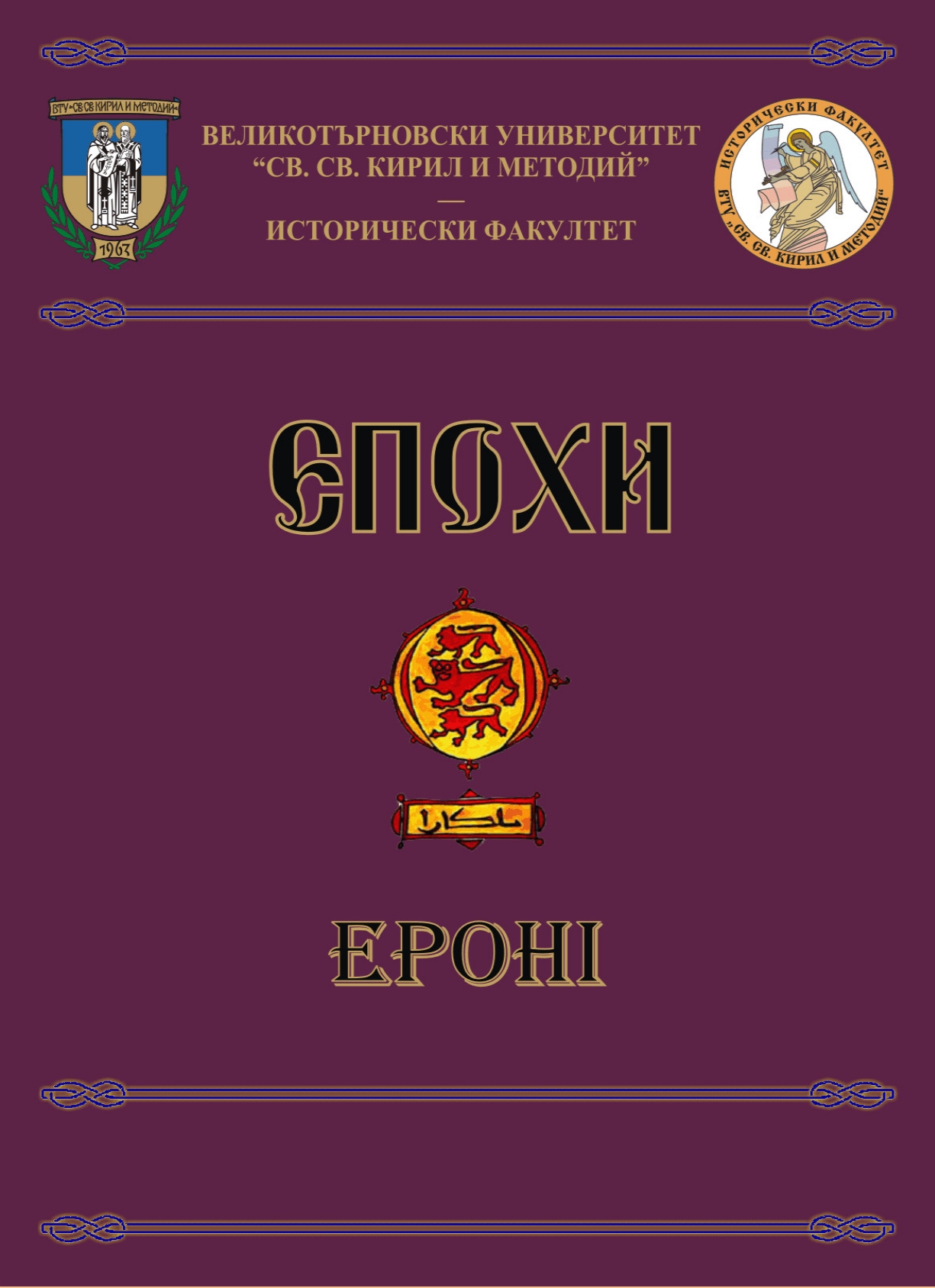
We kindly inform you that, as long as the subject affiliation of our 300.000+ articles is in progress, you might get unsufficient or no results on your third level or second level search. In this case, please broaden your search criteria.

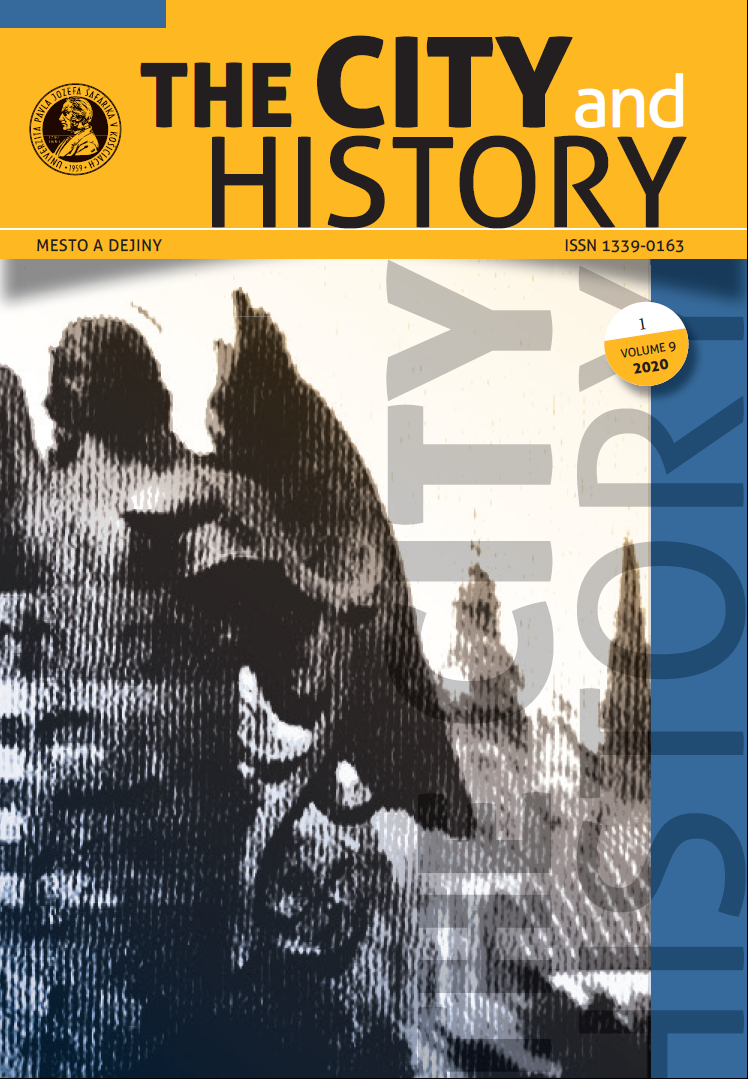
This study contributes new research exploring cases of collaboration with the German authorities and the phenomenon of delators (denouncers), informers and agents in occupied Krakow, as well as letters of denunciation. Cases linked to the blackmailing at the beginning of World War II of Jews, and as the war continued of colleagues and neighbours working for the resistance and of disliked relatives and in-laws are also taken into account. Letters written by Krakow inhabitants – some anonymous, others signed – are appraised for information contained therein on political, racial, economic, social and financial matters. The article also describes the activities of the Polish resistance against collaborators and the post-war settling of scores through the Krakow Special Criminal Court in the early post-war years.
More...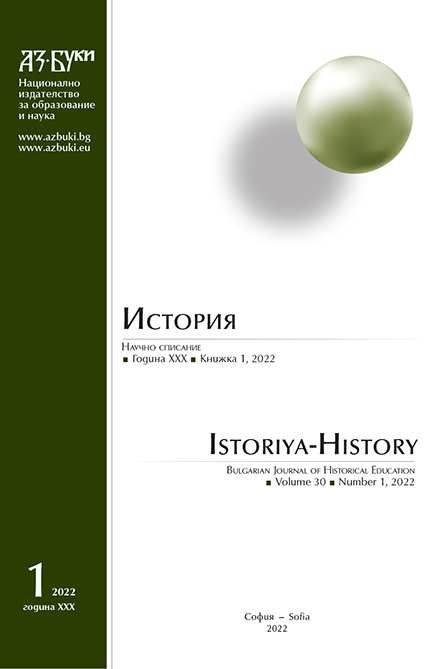
The article outlines the relations between the Patriarchate of Constantinople and the Bulgarians in the 14th century. It is divided into three parts. The first part examines the relations between the Patriarchate of Constantinople and the Patriarchate of Tarnovo, and an attempt is being made to present not only the cases of opposition between the two institutions, but also the interaction and spiritual ties between them. The second part presents the relations between the Patriarchate of Constantinople and the Bulgarians in the context of the political and ecclesiastical life in the Balkans in that period. The third part presents the relations of the Patriarchate of Constantinople with high-ranking Bulgarian clergy, who developed most of their activities outside the Bulgarian lands. They are evidence of the spiritual growth and influence of the Bulgarian Church before its destruction, as well as an example about the traditional contacts of the Bulgarians with the Byzantine Church.
More...
Nearly three centuries have passed since Bulgarian migrants appeared on the territory of contemporary Ukraine. They had to leave their historic homeland due to the strengthening of control of the Ottoman administration over all spheres of life of Bulgarians in the metropolis, as well as the intensification of the Russian-Turkish military confrontation, which drastically affected the economic, social, and cultural situation of the Bulgarian population. The Bulgarians, settled down on the Ukrainian lands, became an integral part of the multi-ethnic Ukrainian society, though fell victim to the assimilation policy of the Soviet period. Bulgarians are undergoing a period of national and cultural revival in the independent Ukraine, which is intimately linked to the process of recovering the historical memory of Ukrainian Bulgarians, restoring the pantheon of national heroes, memorable dates, and revival of traditional culture. In this connection, the researches dedicated to the analysis of the process of formation of the historical memory of the Bulgarian community in modern Ukraine are of particular relevance. The authors emphasize the difference between the two main groups of the Bulgarian community on the territory of Ukraine – Bessarabian and Azov (Taurida) Bulgarians, which is reflected in a reassessment of the role of the migration of ancestors of modern Ukrainian Bulgarians from the metropolis as well as in a monopolization of objects of national and cultural heritage by certain organizations, etc.
More...
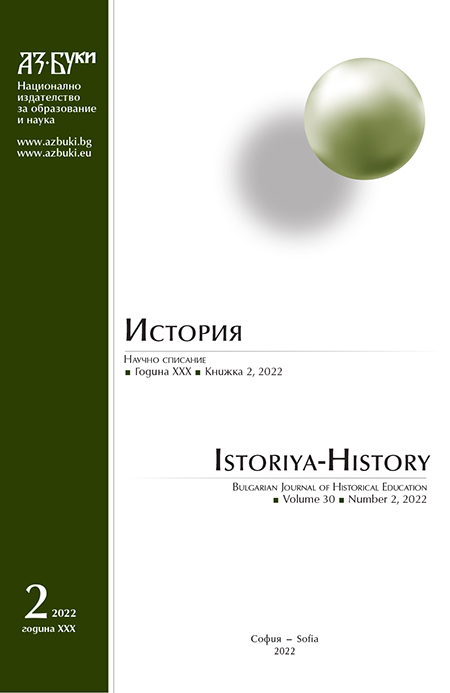
On the basis of published sources and original documents from the Scientific Archive of the Bulgarian Academy of Sciences, the Central State Archive, the Bulgarian Historical Archive at the National Library „St. Cyril and St. Methodius” and the State Archives – Ruse, the views and activities of Vasil Drumev – Kliment Branitski and Turnovski (1841 – 1901) are analyzed. He is one of the brightest personalities in the modern history of Bulgaria: a participant in the First Bulgarian Legion in 1862, a notable writer, one of the founders of the Bulgarian Literary Society in 1869, and after 1878 – a respected bishop, active public figure and statesman. Kliment participated in extremely important moments in the modern history of Bulgaria: the adoption of the Turnovo Constitution, the election of Prince Alexander I, the state building of the young principality, the struggle to restore the constitutional order 1881 – 1883, diplomatic protection of the Union 1885, restoration of relations with Russia and the international recognition of the Bulgarian prince in 1895 – 1896.
More...
The study examines the social characteristics of the clergy in the kaza (region) of Razlog in the early twentieth century. Based on the register of local parish priests from 1910, the main socio-economic indicators of the clergy are traced: age, marital status, ordination circumstances, years of service, church hierarchy, origin and heredity of the profession, education, parish size, annual income. The regional peculiarities of the clergy in the context of the general data on the Bulgarian priests in Macedonia in the beginning of the XX century are outlined.
More...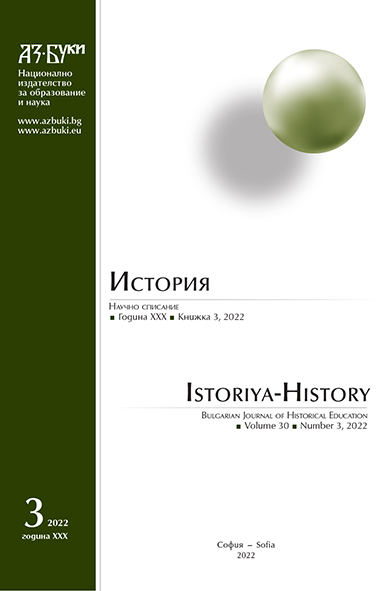
The scientific paper analyzes an anonymous report to the Bucharest newspaper “Narodnost” published as “Letter from Bulgaria” in two consecutive issues in March 1869. The author of the report has not revealed his real name but has nevertheless left specific indicative signs that give material reason to believe this person was Vasil Levski himself. The thesis formulated herewith is supported by relevant evidence. The anonymous report is an important historical evidence for the participation of Vasil Levski in the revolutionary detachment action of 1867. At the same time, its overall contents complement the insufficient sources about his first organisational tour in Bulgaria. The first part of the anonymous report is an authentic text written by Vasil Levski, which has remained unnoticed by the specialized historiography.
More...
Two of the most important and still unresolved issues in the history of the Bulgarian committee movement in the late 60s and early 70s of the XIX century are when the CBRC in Bulgaria (the Lovech`s Central Committee), was established and what`s happened to the private revolutionary committee in Lovech after the establishment of the Central Committee in the same town. The most common opinions are that the CBRC in Bulgaria was established in the second half of 1870, in the spring or the autumn of 1871. According to me, CBRC in Bulgaria was most likely established at the end of September 1871. As for the second question, many historians think that Lovech`s private revolutionary committee has been transformed into a Central committee of the revolutionary organization in Bulgaria. However, some historical sources allow us to think that in the period from the end of September1871 to the so-called General Assembly of BRCC (April 29 – May 4, 1872) in Lovech there was both a Central and a private revolutionary committee.
More...
The purpose of this study is to present unknown and little known facts about the participation of the Sofia representative Hristo Todorov Stoyanov in the Church National Assembly in 1871. He was one of the most active participants in the discussions on the draft statute for the management and structure of the Bulgarian Exarchate. His legal education, extensive knowledge of ecclesiastical and Ottoman legislation, and personal qualities enabled him to express a competent and reasoned opinion in the disputes and discussions that accompanied all meetings. As an advocate of the democratic views regarding the structure of the Bulgarian Church, Hristo Stoyanov supported the principles of electivity and interchangeability of governing bodies, as well as of active participation of the people in the management of the Bulgarian Exarchate. He demonstrated views and a mindset of a parliamentarian that were modern for his time. The experience he had gained contributed to his future success as a member of the Constituent National Assembly in Veliko Tarnovo, as well as of the First and Second Ordinary National Assemblies. Stoyanov was among the “builders” of Modern Bulgaria. He was also a minister (three times), Chief Public Prosecutor, Chairman of the Supreme Court of Cassation of Bulgaria, a publicist and a respected lecturer at the St. Kliment Ohridski University of Sofia.
More...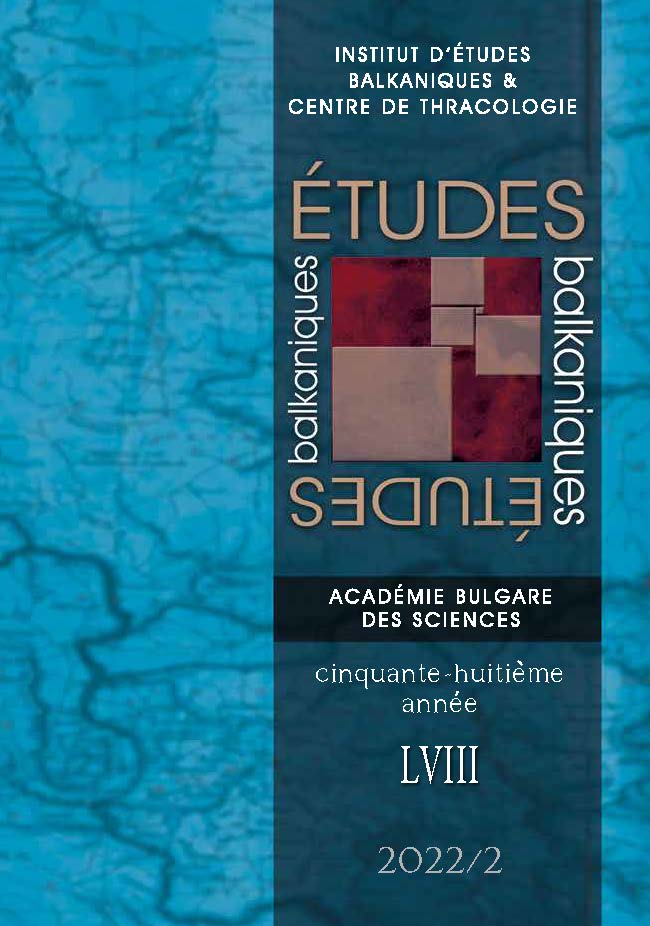
My previous research has shown that Orthodox monasteries, as compared to the Catholic Mounts of Piety, were functioning in the logic of medieval banks. For instance, they served as places of deposit through donations of real estate; the surplus of annual revenues was in turn channelled, on the one hand, for the liturgical commemoration of the donor and, on the other hand, for the assistance to the poor. Donors were thus investing in their salvation while contributing to the common good of the Christian community as well. The “Romanian” monasteries dedicated as metochia to the Eastern Patriarchates fell within the same pattern, except for particularities which stemmed from the specific profile of the donors. Most often they and their descendants were Christian subjects of the Ottoman Empire residing in the Romanian lands or they were ruling princes appointed by the Porte and attached to power networks in Constantinople and Rumelia. Consequently, sacred investing went towards the great monasteries located in the places of origin of the donors, that is, under the jurisdiction of the “Greek” Patriarchates. The double goal of donors was first to secure themselves prayers of commemoration in their place of origin, in prestigious and lasting places of worship, and then to protect the “invested” patrimony from the vicissitudes of time. Furthermore, tacitly donations assisted their poor compatriots and maintained the common weal of their native community, which was the Church itself. I have sustained this argument by comparing the practice of the dedication of “Romanian” metochia to the Holy Places of Orthodoxy to the communal evergetism displayed by the members of the Greek community in Venice via the deposit of large sums of money in Venetian banks. Based on this comparison, it appears that the economic activities of the “Greek” monasteries, which administered the metochia acquired north of the Danube, consisted in putting to work the real estate of the metochia through farming, trade, rental, or pawn brokering, just as money produced profit in Venetian banks. All these peculiarities, which characterized the Wallachian and Moldavian churches dedicated to the Greek Patriarchates, i.e., being founded and subsidized by migrants, accommodating travellers, or practicing trade, explain the concentration of the metochia in and near the urban centres of Wallachia and Moldavia, more precisely in proximity to markets and to migrant communities. The present study examines closely this ingenious system put in place by the Greek monks, consisting, on the one hand, of channelling the income from the lands scattered throughout Wallachia and Moldavia to the metochia situated in the towns, which in turn devoted themselves to reinvesting the gains in urban real estate, commercial, and financial affairs and, on the other hand, to attract donations from wealthy migrants and from their descendants concentrated in urban centres.
More...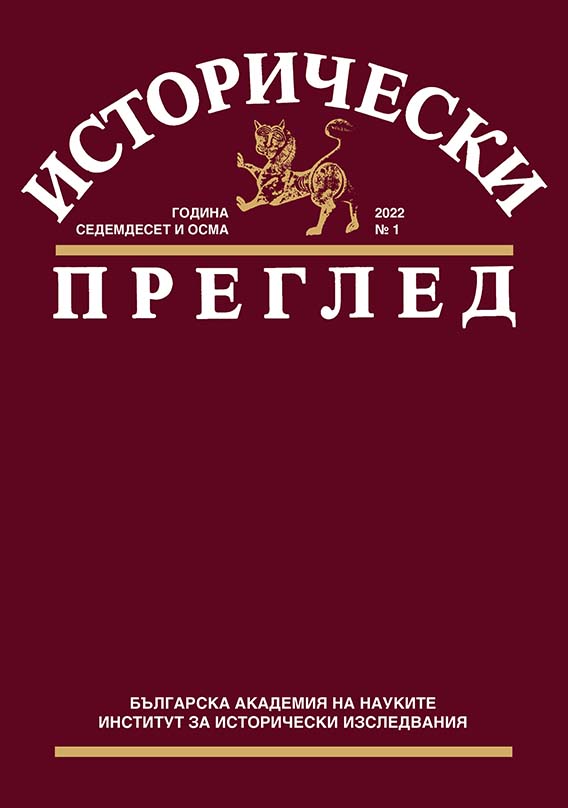
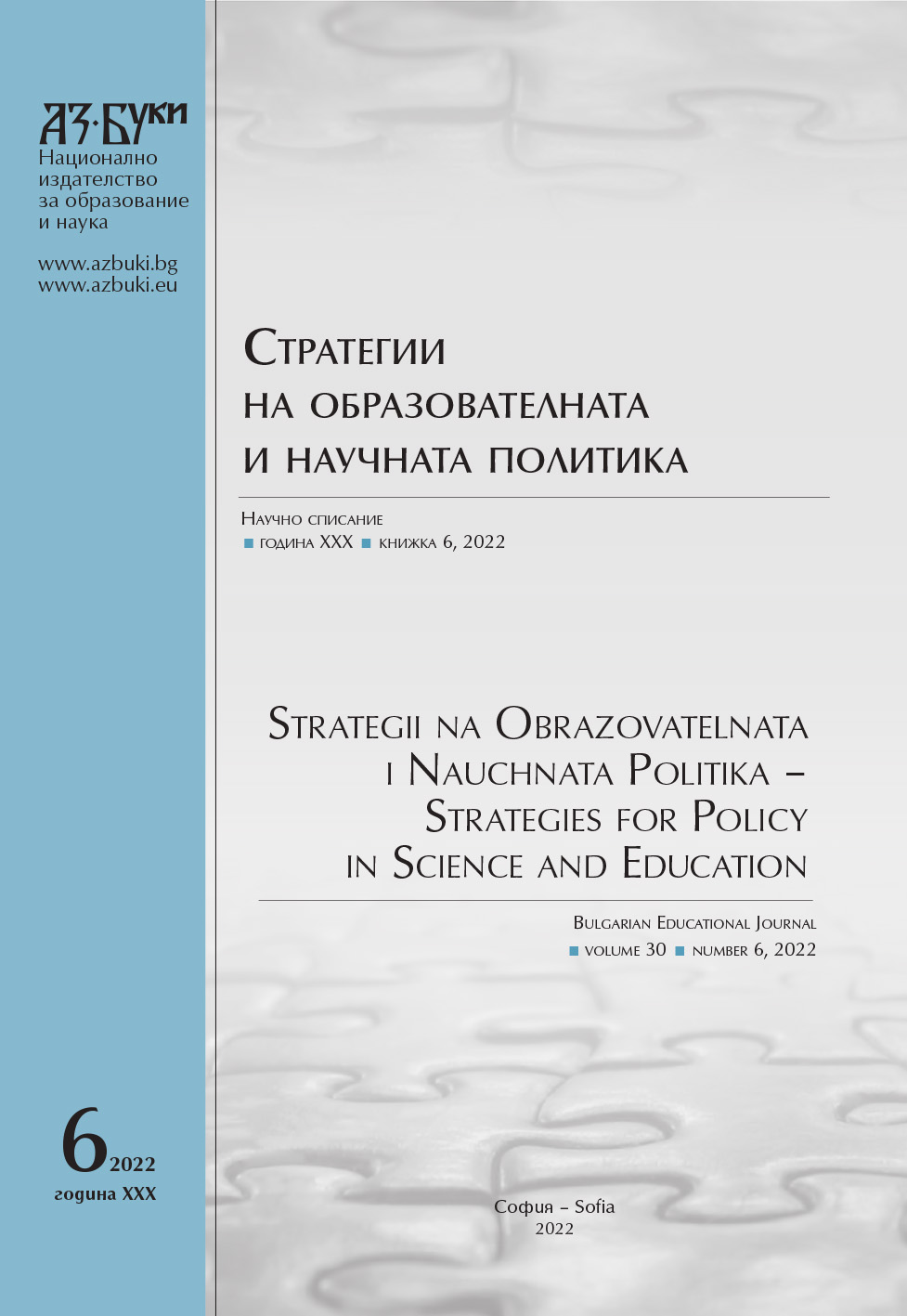
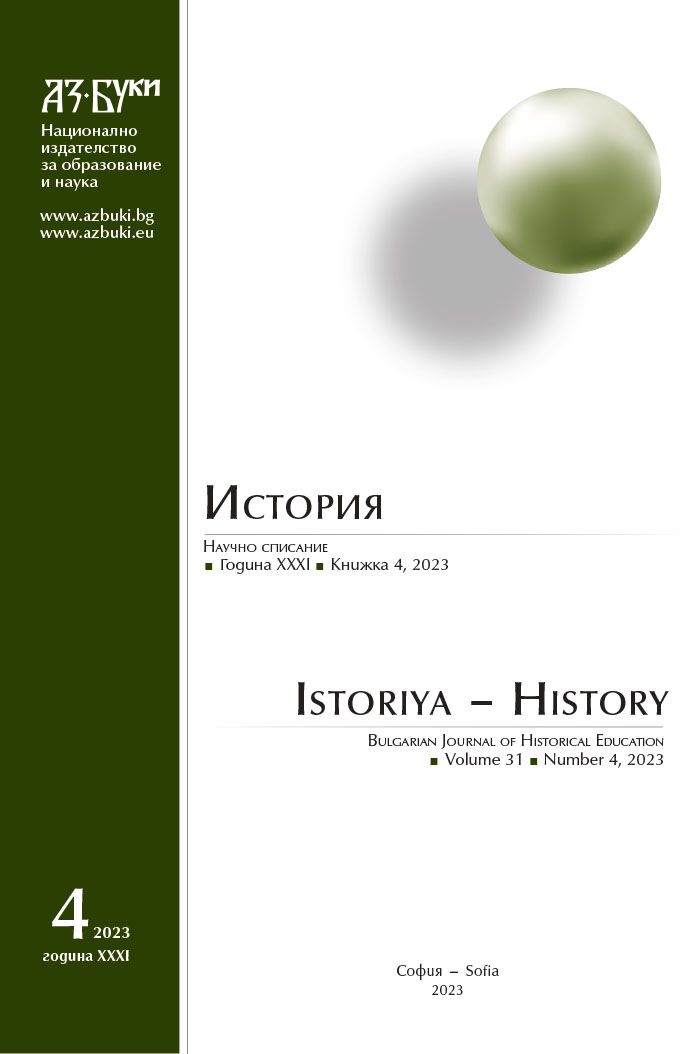
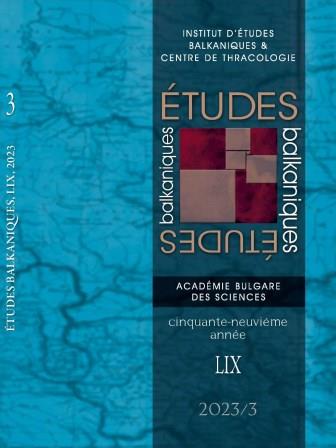
By the end of the 19th century approximately a quarter of the Orthodox Bulgarians in the historical and geographical area of Macedonia remained loyal to the Patriarchate of Constantinople, which served the Greek national idea. Both, in the past and today, this fact has raised the issue of the national affiliation of the Bulgarian-speaking population in the European dominions of the Ottoman Empire. Why did these people remain loyal to the Patriarchate, despite the long-lasting efforts of the Bulgarian Exarchate to attract them to itself? The author highlights the unequal status of the two ecclesiastical institutions in the Ottoman administrative system as a leading factor that hindered the normal functioning of the Bulgarian Church and severely limited its ability to guarantee the political, religious, cultural and educational rights of the Bulgarian Exarchists. On the border between the two centuries, being at the heart of the struggle for the distribution of the Ottoman inheritance in the Balkans, the Bulgarians in Macedonia were faced with difficult choices, which determined not only their personal well-being, but sometimes even their lives.
More...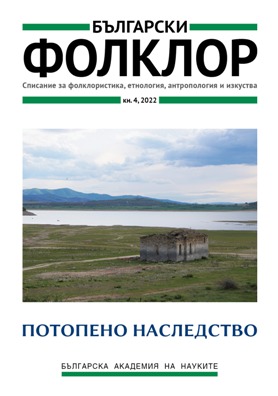
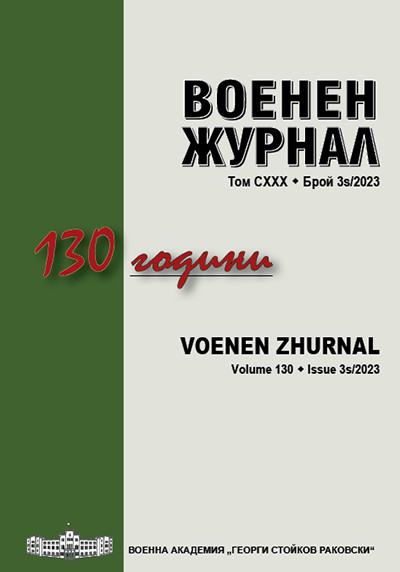
The article presents facts and arguments about the creation, the heroic and glorious war path and the names of the battle glory of the first artillery regiments of Bulgaria, and specifically of the nine divisional artillery regiments that participated in the Balkan War 1912-1913. Data on the presence or absence of built monuments, memorial plaques or commemorative signs in honor of the artillery regiments in the areas in which they were established and/or quartered are presented. Photographs of the military monuments of the artillery regiments from the time of their creation to the present are shown.
More...
The article examines the actions of the 9th Infantry Pleven Division in the Second Balkan (Inter-Allied) War from the memoirs of Ivan Kovashki, Company sergeant major of the 34th Infantry Troyan Regiment. These memories are a valuable source for the actions of the division as well as his 34th Regiment. The memoirs provide first-person information not only about the course of hostilities, but also about some fateful moments related to the soldiers’ mutinies in the division, saving the regiment’s flag, and relationships between officers and soldiers. A comparison is made between the facts transmitted through personal memories and the official (archival) documents of the division: relations, operational orders, reports, etc. The goal is to clarify in the most accurate and historically accurate way the reasons that led to the disbandment of the division, as well as to emphasize the heroism of its ranks who remained loyal to their oath to the King and the Fatherland.
More...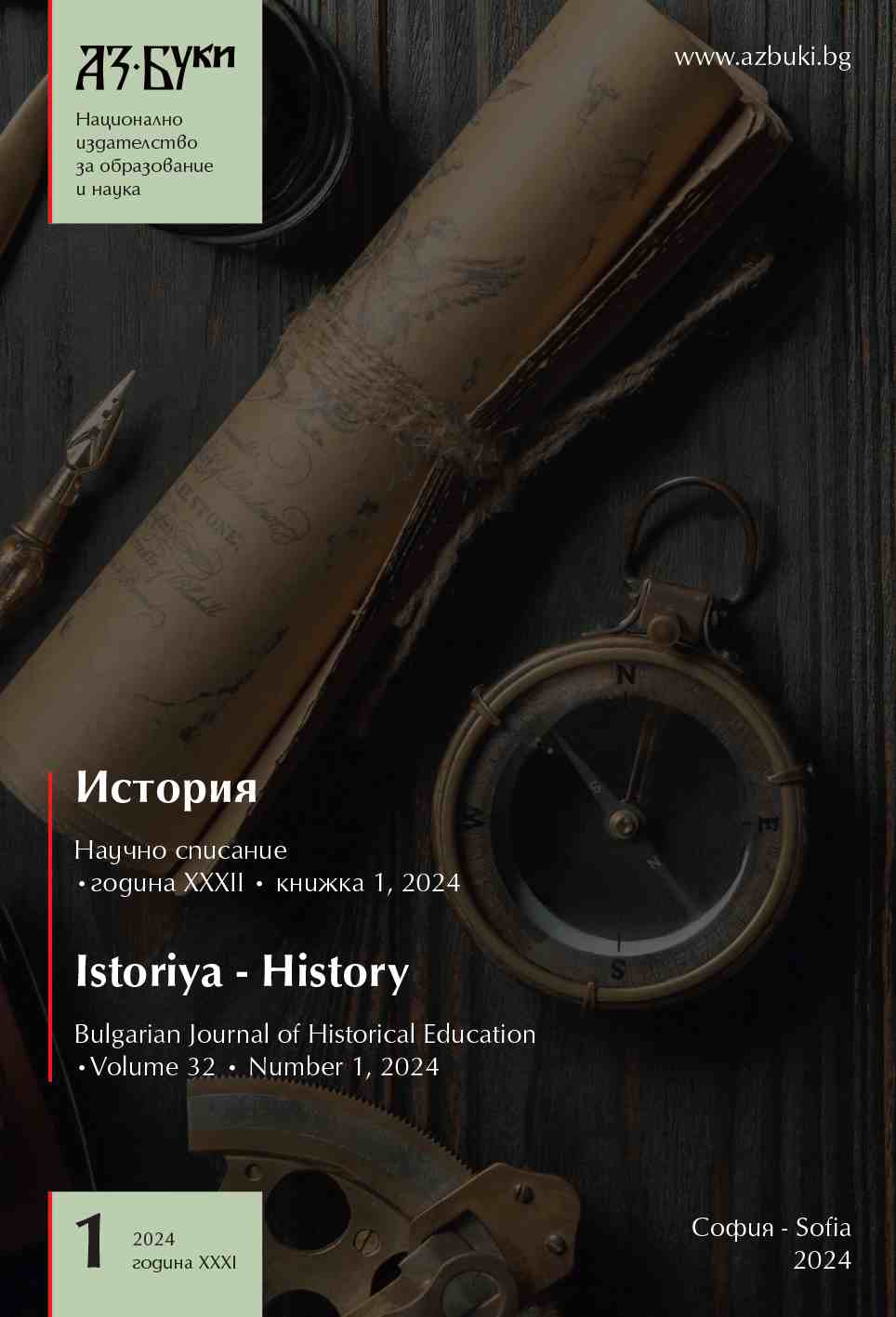
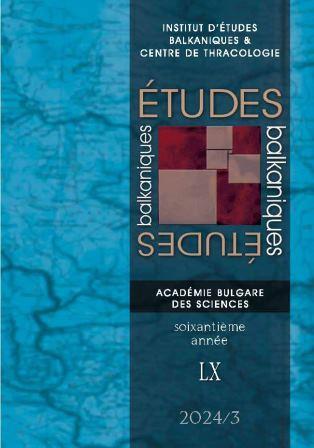
The article focuses on imperial policies towards provincial elites in the Balkans and Asia Minor in three major empires which succeeded one another, namely the Roman, the Byzantine, and the Ottoman. Provincial elites were important for imperial power as intermediaries between local communities and central authorities. Our article adopts a political and institutional approach, and focuses on provincial elites as agents who were given formal or informal shares in the mechanisms and hierarchies through which empires were governed. Following surveys of imperial policies towards provincial elites in the three polities, it argues that, unlike the concept of empire which can be universal, imperial systems of government are neither uniform nor static, and depend on such factors as state ideology, historical circumstances, and political and economic exigencies. Ultimately, our article demonstrates how structural differences in the very conception of imperial governance and ideology resulted in differentiated policies towards provincial elites.
More...